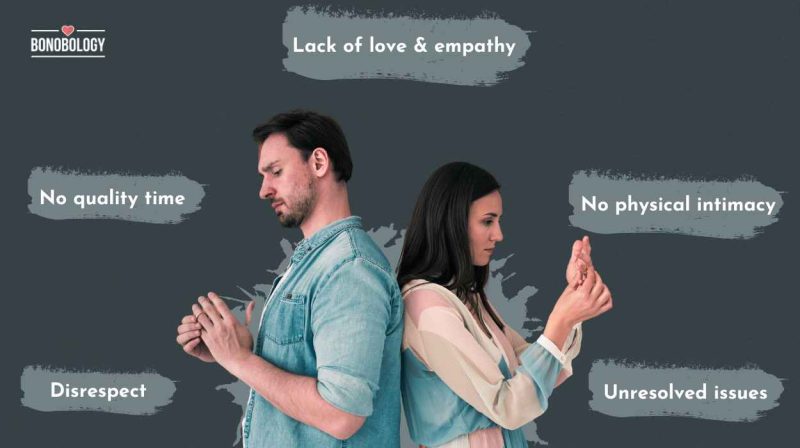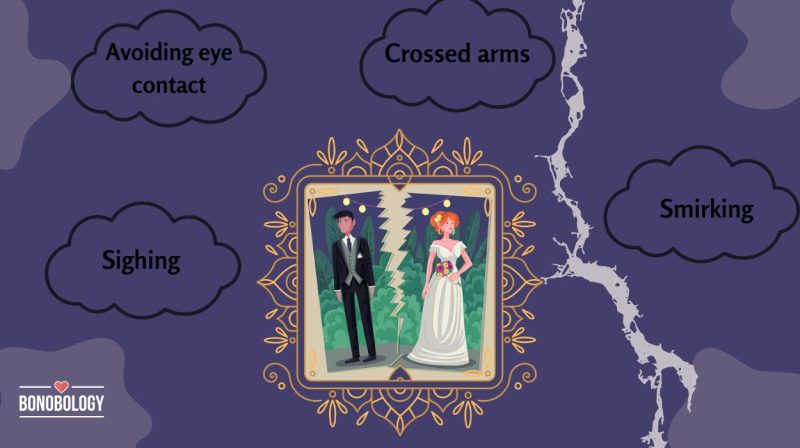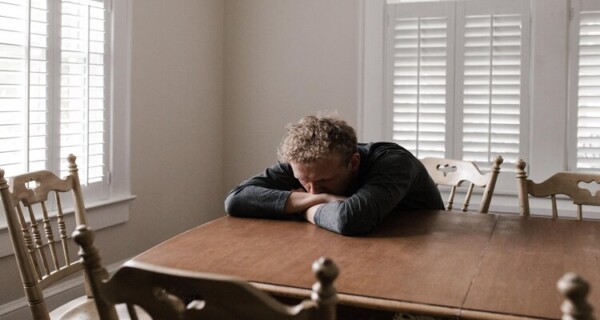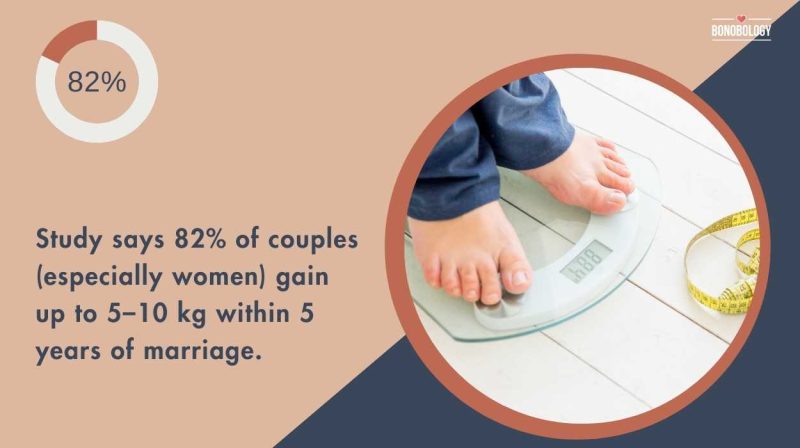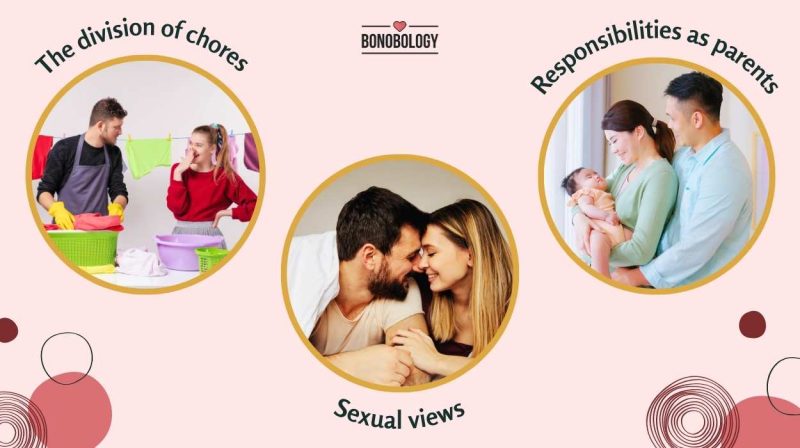Did you know that how you choose to express yourself in your relationships can be a direct outcome of the family dynamics you experienced while growing up? Understanding the types of family dynamics your partner experienced while growing up might just help you explain why they chose to avoid conflict when you confronted them about your lack of communication.
How you love, how you express your love, how people accept and internalize love, are all impacted by family dynamics. Resorting to humor to diffuse a tense situation or reacting with violent rage, the psychological reasoning behind both can be explained by one’s family dynamics.
What do healthy family dynamics look like? How do they impact children, partners and how did your family dynamics impact you? Let’s find out everything we need to know, with psychologist Juhi Pandey (M.A, psychology), who specializes in family therapy, premarital and breakup counseling.
What Are Family Dynamics?
Table of Contents
Family dynamics are essentially the intricacies of how family members and relatives interact with each other and what their roles are in the dynamic. The type of relationship you have with your family while growing up, the types of relationships you witness, and the way you interact with each other, are all a part of family dynamics.
Without even being aware of it, family dynamics end up affecting our decision-making in almost every aspect of our lives. This is why it’s extremely important for us to understand and analyze our own, or that of our partners, so we can have a better relationship with ourselves and our spouses.
Speaking on the importance of healthy family relationships, Juhi Pandey says “Healthy family dynamics affect children in a positive way. If they’re growing up in a functional and healthy family, the child will have higher self-esteem, will be more social, understanding, and empathetic. The way parents interact with each other and the child in a healthy family relationship will affect the child’s personality in a positive way.”
If you or your partner spend a lot of time trying to please others around them, putting others’ needs over their own, family dynamics might be able to explain why. If they didn’t receive much comfort and validation while growing up, their adulthood then becomes a quest to please others in order to feel validated, because that’s what they’ve been doing since they were children.
The types of family dynamics and family dynamics psychology can help explain a lot about you and/or your partner. But what affects family dynamics in the first place? How are some families different than others?
What Affects Family Dynamics?
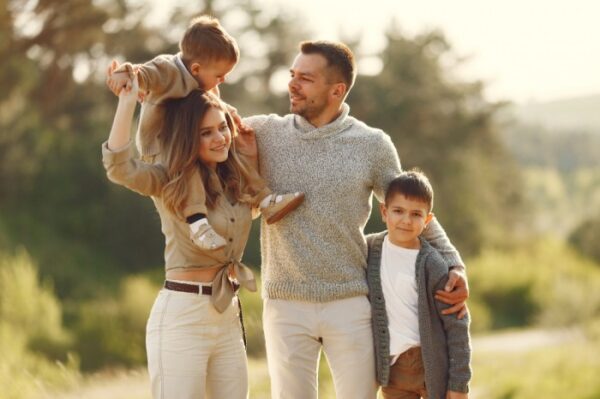
The reasons why family dynamics are different from relationship to relationship are unique to every single case, but there are some commonalities that may be able to explain why some family dynamics are the way they are.
For example, the biggest driving factor that affects family dynamics is the nature of the parent’s relationship. If the parents are always hammer and tongs at each other, it’s easy to see how the family dynamics roles will suffer as a result. Children of divorced parents develop multiple intimacy issues as well.
The personalities of family members, an absent parent, a chronically sick child, inherent family values and traditions all affect family dynamics differently in every part of the world. As a result, the individuals in the family, each cultivate separate personalities based on what they’ve been seeing around them.
As W. Clement famously put it, “You are a product of your environment.” Multiple studies have claimed that family dynamics end up affecting not only the interpersonal relationships a person has in the future but also his/her physical and mental health.
The Factors Influencing Family Dynamics
As you know by now, family dynamics have to do with how family members relate with each other, how they interact with each other, the family dynamic roles they have been given and the values and beliefs they have. Such dynamics are the result of multiple generations of personalities, circumstances and beliefs, and can often shape the way a person perceives the world. Let’s take a closer look at the factors influencing family dynamics.
1. Family structure
The family dynamics greatly rely on the structure a family has. A single-parent family is often going to demonstrate a different dynamic than a family with grandparents raising the grandchildren. Moreover, the family structure can continually change, since one family might go from a nuclear to a joint, or from a single-parent to introducing step-parents and step-siblings.
2. The personality of the family members
Ever wonder why some people are naturally funny? Ask them if they grew up in a house with a funny parent, they’ll probably say yes. Ever wonder why some people fail to take criticism? They probably grew up with a stern primary caregiver, who didn’t give out the most constructive feedback. That could also be one of the reasons why they’re insecure in their relationships.
The personalities of family members are perhaps the most important factor that influences family dynamics. In large family structures, the mix of multiple personalities may also add layers of complexity.
Related Reading: Talking To Your Partner About Your Dysfunctional Family – The Right Way, And Should You?
3. Roles and responsibilities
The roles in a family are often given to members without much discussion about it taking place. If you’re naturally the mature one, you’ll take on the role of the leader and the mediator. A few common roles members of a family play are peacemaker, instigator, challenger, fixer, etc.
The birth order also greatly affects the roles you take up. The first-born child is a natural leader, and the middle child is usually more extroverted. These roles can greatly affect the self-confidence and esteem of different family members, as well as the relationship they share with each other.
4. Family goals and values
Family values aren’t just established over the course of a few years, they’re usually influenced by past generations as well. Moreover, each individual member of the family can end up developing his or her own set of values. They may overlap with the family values in some cases, but in other, more confusing dynamics, one member may go on a completely different route.
Similarly, each individual member of the family may have different goals for themselves and/or the family. For example, if one member only wishes for the entire family to live close or with each other and the others disagree, it may lead to conflict and resentment later.
5. History and circumstances
Trauma, physical or verbal abuse, the death of a loved one or even absenteeism can all gravely affect the way a family operates. The lasting effects might be felt long after the trauma has taken place, and can greatly affect the way a family operates. For example, the sudden death of an important figure may greatly affect the members.
Similarly, the history of the relationship amongst family members can have a huge influence as well. If there have been periods of discontent among family members, the dynamic is going to greatly differ from families that have always have harmonious relationships.
So if you see your partner react nonchalantly to being abused while you boil with rage every time you’re disrespected, it’s possible the family dynamics you witnessed while growing up may be affecting your responses to the stimuli. Let’s go into a bit more detail on how the house you grew up in defines the house you’ll grow a family in.
Related Reading: Romantic Life Off Tracks? How You Were Raised Affects Relationships
What Are The Types Of Family Dynamics?
Now that we have an understanding of the family dynamics meaning and how family relationships can affect our future relationships, what are the types of family dynamics? And more importantly, how do they affect individuals?
1. Functional family dynamic

You know the kind, a happy, healthy family, passing food around at the dinner table, discussing how their day went with plenty of humor and laughter. A functional family dynamic is one where the parents play their role of the caretakers, guardians and nurturers, among others.
A functional family dynamic features mutual respect between the parent and the offspring. There are often healthy boundaries in place, healthy limits, and an environment that encourages emotional growth and respectful dealing with conflicts.
Studies claim that healthy family dynamics have a positive impact on the psychological and physical aspects of a person’s life. Similarly, it’s no surprise that studies tell us that children living in healthy family dynamics tend to have better physical, emotional and academic well-being.
To make sure your family creates and thrives in a healthy family dynamic, Juhi shares some tips. “Every child expects love, nurturing, care and attention. You can only provide them when you’re in a stage of your life that permits you to provide care to the people around you. The first thing you should do is to change yourself and try to develop a positive self-attitude.”
2. Dysfunctional family dynamic
A dysfunctional family may include an abusive/alcoholic parent or just simply lack any understanding of respect, boundaries, and unity. A dysfunctional family negatively affects everyone in the dynamic, especially the children, since the effects of a dysfunctional family dynamic tend to stay with them till adulthood.
Speaking on how unhealthy family dynamics can affect a child, Juhi says “When you talk about personality in general, personality is a mixture of nature vs nurture. A child’s personality is shaped by the genes s/he carries and, most importantly, the nurturing s/he receives. If a child is aggressive or abusive, it could directly stem from unhealthy family dynamics.”
A dysfunctional family frequently features a lack of communication, which in turn leads to a magnitude of problems that never see the light of day, ending up being suppressed. Studies claim that parents in a dysfunctional family contribute to the development of psychological trauma in their children, which continues to affect the relationships they have in adulthood.
Toxic Family Dynamics
A single member of a family has the potential to turn the entire family relationship into a toxic one. Signs of a dysfunctional family include a lack of healthy conflict resolution and an abusive/addicted family member who negatively affects the mental/physical health of others, neglect, zero boundaries or sense of privacy, fear, and conditional or no love.
A toxic family can drastically affect the confidence and self-esteem of the children. A few notable signs of a toxic family include parents who are excessively controlling. They may snatch decision-making power from the children, leaving them feeling incapable of being in charge of their own life.
The members of the family who display toxic behavior often find it hard to accept any responsibility, hence the other members of the family are always blamed regardless of what happens.
Threats, manipulation, gaslighting and abuse are often featured in a toxic family. The detrimental results can often hamper the mental health of individuals in it, as well as their future interpersonal relationships.
Even though we’ve listed out the types of family dynamics, things often aren’t as black and white. Just as the world cannot simply be divided into good and evil, there are other parts to the equation as well. The equations change depending on the environment and the variables introduced into them. What remains constant, however, is that family dynamics invariably affect the way we love in our relationships. Let’s take a look at how.
Related Reading: 15 Signs You Had Toxic Parents And You Never Knew It
How Do Family Dynamics Affect The Way We Love?
During the 1960s and 70s, psychologists John Bowlby and Mary Ainsworth made headway into the field of studying interpersonal relationships between humans, specifically how the parent-child dynamic affects children. The theory, famously named the “attachment theory”, tells us that children need to develop a relationship with at least one caregiver, in order to obtain emotional development and growth.
The same theory and a plethora of subsequent studies since, explicably state that early attachments can have a major impact on the future relationships we have. Much of the differences in how people react to external factors within a relationship can be attributed to the dynamics they witnessed as children.

How do dysfunctional family dynamics affect the way we love?
The attachment theory tells us that children diagnosed with PTSD due to Adverse Childhood Experiences tend to have problems with opening up to future partners and have major attachment problems.
Dysfunctional family dynamics examples include when a child grows up in a toxic family, they may end up having self-esteem issues in a relationship and develop anxiety and trust issues. Since children in abusive families tend to run away from their issues, as an adult partner, this person may suppress their feelings and try to escape them by turning to drugs/alcohol.
When parents are overly critical and lack any display of intimacy, the child in that family dynamic ends up carrying an innate need to please whoever they end up with. Hence, they go out of their way to put a smile on their partners’ faces, which is also their way of feeling a sense of self-worth.
How do functional family dynamics affect the way we love?
On the other hand, healthy family relationships instill the values of love, trust, communication and kindness into a person. Multiple studies have claimed that children who have experienced a healthy family relationship have a higher chance of becoming better parents and better partners themselves.
Those who grow up in a healthy family display little to no feelings of anxiety and trust issues in their future relationships. They’re more likely to be more affirmative and loving, leading to a better relationship.
Related Reading: Here’s How Being Clingy In A Relationship Can Sabotage It
How does family therapy help?
Juhi tells us that family therapy can help improve the mental state of children while treating any problems at their roots. “As a counselor, when a child comes with a problem, a lot of times we see the problem is not with the child, it is just the projection of the disturbances he has in his family. Family therapy addresses issues at their root, attempting to eliminate the source of the issues.
Once things are tended to in unhealthy family dynamics, it invariably reflects positively on the child. The child, as well as the parents, become more confident and display feelings of joy. When the problems are solved from the very source, which in many cases, is a dysfunctional family dynamic, it positively affects everyone involved.”
The importance of developing and sustaining healthy family dynamics cannot be overstated. Countless studies and experiences all tell us how a family dynamic can end up affecting the way people approach future relationships. If you’re currently struggling with a dysfunctional family dynamic, Bonobology has a multitude of experienced therapists, including Juhi Pandey herself, who would love to help you through this difficult time.
FAQs
Unhealthy family dynamics include the absence of boundaries, trust, privacy and emotional intimacy in a family. An unhealthy family dynamic may also feature abusive parents, who criticize and/or disrespect the other family members. They may also include addictive personalities, whose unhealthy addictions harm others around them.
The components of family dynamics are the structure of the family, the presence of emotional intimacy, love, trust, respect, care and boundaries. The parenting style, the magnitude of the roles played in families by individuals, all play a part in family dynamic components.
Signs of a toxic family include disrespectful family members, abusive/addicted members, lack of communication, lack of intimacy, negatively affecting other’s mental health, and damaging and problematic responses to trivial things.
6 Couples’ Experiences On How Talk Therapy Helped Their Relationships
Your contribution does not constitute a charitable donation. It will allow Bonobology to continue bringing you new and up-to-date information in our pursuit of helping anyone in the world to learn how to do anything.



